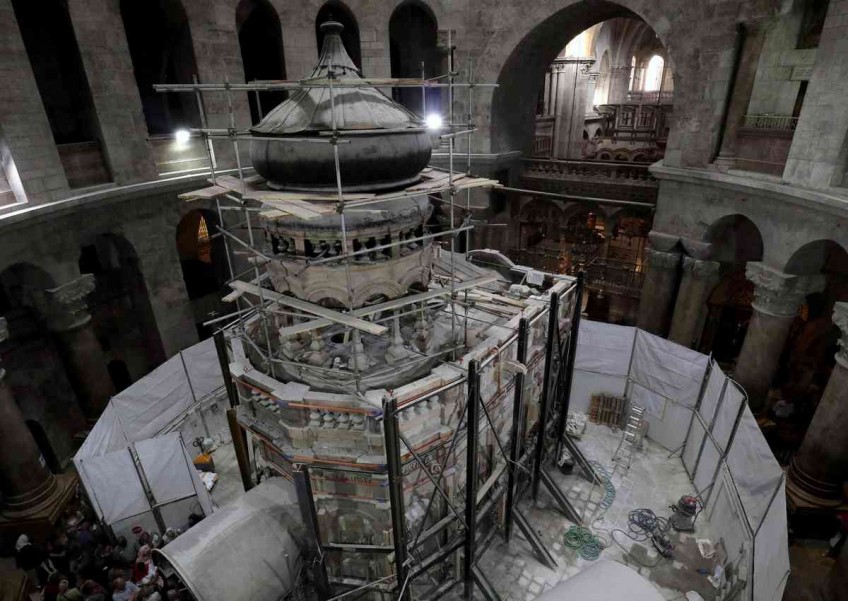The 1000-year-old promise of peace

Two Muslim families hold the keys to the doors of Jerusalem's holiest church in order to keep the peace between three feuding Christian denominations.
On a recent Sunday morning, Adeeb Jawad Joudeh Al Husseini was sitting on a bench just inside the sole public entrance to Jerusalem's Church of the Holy Sepulchre.
The doorway to the sprawling church, founded in the 4th Century, is where the 53-year-old Muslim has spent much of his life.
His father, grandfather and dozens of generations of forefathers before them also dedicated most of their lives to sitting on this bench, guarding the church believed to contain the tomb of Jesus, Al Husseini said, pulling a 20cm-long iron key out of his leather jacket's inner pocket.
This key is the only one that can unlock the church's imposing wooden doors, a duty that was, according to Al Husseini, given to his family by Saladin, the sultan who captured Jerusalem from the Crusaders in 1187 - just one of many times that control of Jerusalem, coveted for its holiness by Jews, Christians and Muslims, has switched hands.
Saladin wanted to make sure that the church was not harmed by his fellow Muslims, something that happened in 1009 when the Fatimid caliph al-Hakim ordered a number of churches in the Holy Land be burned, including the Holy Sepulchre. (Al-Hakim's son approved the rebuilding of the church in 1128.)
"So Saladin gave our family the key to protect the church," Al Husseini said.
"For our family, this is an honour. And it's not an honour just for our family, but it's an honour for all Muslims in the world."
Members of Al Husseini's family, along with another Muslim family, the Nuseibehs, have become permanent fixtures in the complicated fabric of the Holy Sepulchre church.
Read the full article here